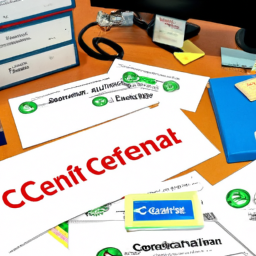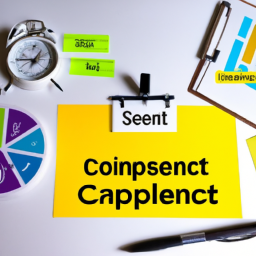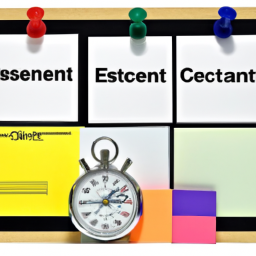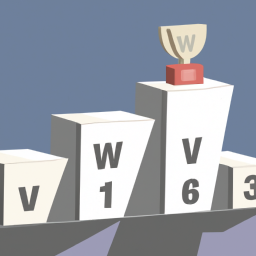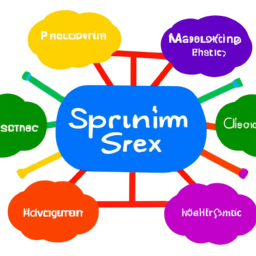Are you ready to tackle the SCRUM exam head-on and conquer it with confidence?
Get ready to dive into the ins and outs of this challenging assessment, as we break it down for you step by step.
From the key topics you’ll need to know, to the best ways to prepare, this article will equip you with the tools you need to succeed.
So, grab your study materials and let’s embark on this exam journey together.
Key Takeaways
- The SCRUM exam evaluates understanding of SCRUM principles and practices, roles and responsibilities within a SCRUM team, different SCRUM ceremonies, and various artifacts used in SCRUM.
- The key topics covered in the SCRUM exam include the SCRUM framework, SCRUM artifacts, SCRUM events, and the importance of effective collaboration and progress tracking.
- Effective exam preparation tips include implementing time management strategies, creating a study schedule, utilizing study techniques such as flashcards and summarizing key concepts, and practicing sample questions and participating in study groups or online forums.
- Understanding the exam format and structure is important, as the exam consists of multiple-choice questions with a time limit and is divided into different sections or domains focusing on specific aspects of SCRUM methodology.
Overview of the SCRUM Exam
You’ll want to know that the SCRUM Exam is a comprehensive test that evaluates your understanding of SCRUM principles and practices. It covers a wide range of topics including the roles and responsibilities within a SCRUM team, the different SCRUM ceremonies, and the various artifacts used in SCRUM.
The exam content is designed to assess your ability to apply SCRUM concepts in real-world scenarios and make informed decisions as a SCRUM practitioner. To prepare for the exam, it is essential to utilize study resources such as online courses, practice exams, and study guides. These resources will help you familiarize yourself with the exam format and content, allowing you to confidently demonstrate your knowledge and skills.
Now, let’s dive into the key topics covered in the SCRUM Exam.
Key Topics Covered in the SCRUM Exam
To fully grasp the key topics covered in the SCRUM exam, it’s important to understand the fundamental principles and roles within the SCRUM framework. Here are the key topics you can expect to encounter in the SCRUM exam:
-
Scrum Framework: Familiarize yourself with the purpose and benefits of SCRUM, as well as the different roles and responsibilities within the framework.
-
Scrum Artifacts: Understand the importance of product backlog, sprint backlog, and increment in the SCRUM process, and how they contribute to the successful delivery of a project.
-
Scrum Events: Learn about the various events in SCRUM, such as sprint planning, daily scrum, sprint review, and sprint retrospective, and how they facilitate effective collaboration and progress tracking.
Tips for Effective Exam Preparation
When studying for the SCRUM exam, it’s helpful to implement effective exam preparation strategies. Time management is crucial in ensuring that you cover all the necessary topics and have enough time to review.
Start by creating a study schedule that allocates specific time slots for each subject or chapter. Break down your study sessions into manageable chunks to avoid feeling overwhelmed.
Utilize study techniques that work best for you, such as creating flashcards, summarizing key concepts, or teaching the material to someone else. Actively engage with the material by practicing sample questions and participating in study groups or online forums.
Remember to take breaks to recharge and avoid burnout. By implementing these strategies, you’ll be well-prepared for the SCRUM exam.
Understanding the Exam Format and Structure
Understanding the exam format and structure can help you better navigate the SCRUM exam and feel more confident in your preparation. Here are three key points to keep in mind:
-
Multiple Choice Questions: The SCRUM exam typically consists of multiple-choice questions. You will be presented with a question and several possible answers, and you must select the correct one. It’s important to read each question carefully and consider all the options before making your choice.
-
Time Limit: The exam is timed, so it’s crucial to manage your time effectively. Make sure to allocate enough time for each question and avoid spending too much time on difficult ones. If you’re unsure about an answer, it’s better to make an educated guess and move on rather than getting stuck.
-
Exam Structure: The SCRUM exam is usually divided into different sections or domains, each focusing on a specific aspect of SCRUM methodology. It’s essential to familiarize yourself with these sections and understand the weightage of each domain. This will help you prioritize your study and focus on the areas that carry more marks.
Common Mistakes to Avoid in the SCRUM Exam
One common mistake to avoid in the SCRUM exam is not managing your time effectively. Time management is crucial to ensure that you are able to answer all the questions within the given time limit.
One of the common pitfalls is spending too much time on difficult questions, leaving less time for the easier ones. To overcome this, it is important to have a study strategy in place. Prioritize your study materials based on the exam syllabus and allocate time accordingly.
Break down your study sessions into smaller, focused blocks to maximize productivity. Additionally, practicing with mock exams can help you become familiar with the format and improve your time management skills.
Frequently Asked Questions
How Long Does It Take to Complete the SCRUM Exam?
On average, how long does it take to complete the SCRUM exam? Well, it really depends on your preparation and experience level.
The exam itself typically takes around an hour to complete. However, to ensure success, it’s important to spend some time studying and familiarizing yourself with the SCRUM framework.
Be sure to review the study materials, take practice exams, and engage in hands-on learning. These study tips will help you feel confident and ready to conquer the SCRUM exam.
Are There Any Prerequisites or Eligibility Criteria for Taking the SCRUM Exam?
Before diving into the details, let’s address the question at hand: are there any prerequisites or eligibility criteria for taking the SCRUM exam?
Well, the good news is that there are no specific prerequisites or eligibility criteria for the SCRUM exam.
Anyone who is interested in learning about SCRUM and wants to validate their knowledge can take the exam.
Is the SCRUM Exam Open Book or Closed Book?
The SCRUM exam can be either open book or closed book, depending on the specific requirements set by the certifying body.
In an open book exam, you are allowed to refer to study materials and resources during the test.
On the other hand, in a closed book exam, you are expected to rely solely on your knowledge and understanding of the subject.
It’s important to check the exam guidelines to know which type of exam you will be taking.
Can the SCRUM Exam Be Taken Online or Is It Only Available at Physical Testing Centers?
Yes, the SCRUM exam can be taken online, as well as at physical testing centers. The online availability provides convenience and flexibility, allowing you to take the exam from the comfort of your own space.
However, there are also advantages to taking the exam at physical testing centers, such as a controlled environment and the presence of proctors to ensure fairness.
Ultimately, the choice is yours based on your preferences and circumstances.
What Is the Passing Score for the SCRUM Exam and What Happens if I Fail?
The passing score for the SCRUM exam is 85%. If you fail, don’t worry, you can retake it. However, there are consequences of failing.
You will need to wait for a specific period before you can retake the exam. This time can be used to focus on areas where you need improvement. Remember, the goal is to learn and grow.
With the right preparation and determination, you can achieve success in the SCRUM exam.
Conclusion
In conclusion, preparing for the SCRUM exam requires dedication and a proactive approach. You should expect a comprehensive assessment of your understanding of key topics.
By following the tips provided and understanding the exam format, you can enhance your chances of success. Remember, practice makes perfect, so don’t underestimate the importance of mock exams.
Avoiding common mistakes will also contribute to your overall performance. As the saying goes, ‘A stitch in time saves nine,’ so invest your time wisely and reap the rewards of a well-prepared SCRUM exam.
Together, let’s achieve greatness!






